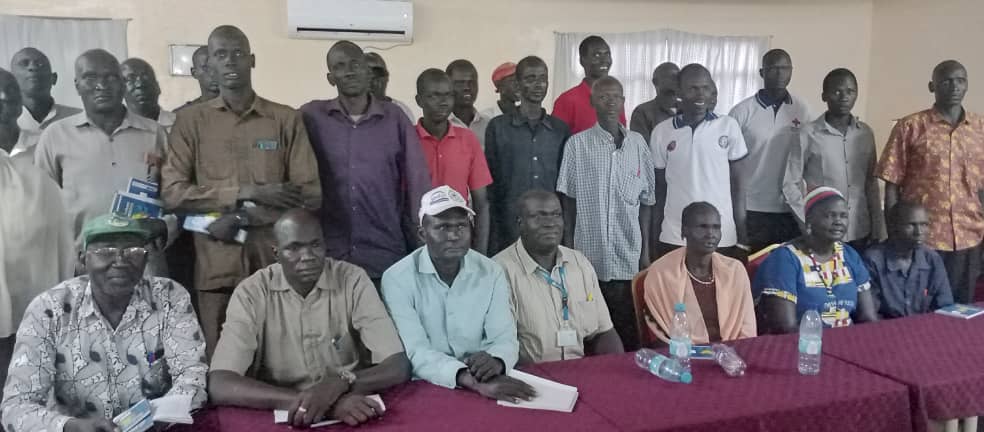By Yang Ater Yang
Communities of greater Rumbek have resolved to revive collection of water tariffs from residents to cover operation and maintenance expenses of facilities.
The resolution was adopted during a one-day stakeholders’ workshop organized to devise water management mechanisms.
The Centre for Emergency Development Support (CEDS) and Lakes State Ministry of Housing, Land, and Public Utilities in collaboration with the UN Children’s Education Fund (UNICEF) organized the workshop.
Aimed at obtaining state government’s political commitment to support implementation, the workshop also recommended a robust structure to oversee water tariff collection, procure spare parts and tools for operation and maintenance, and ensure accountability for the funds collected.
It drew together forty-two (42) participants, including youths, women, pump mechanics, WASH partners, water users’ committees, and local government executives from three counties: Rumbek Central, Rumbek North, and Rumbek East.
Barnaba Makuac Magol, the director of water in Lakes State, highlighted the challenge of the sustainability of 2,780 boreholes across Lakes State.
He noted that there are 625 boreholes not functioning, and communities that rely on those boreholes cannot access water service. UNICEF, CEDS, and other NGOs involved in the WASH sector partnered to address the matter.
“We sat down and came out with a modality to appreciate sustainability through the community collecting tariffs and with structure so that the pump mechanic can form an association and water management committee to collect tariffs,” Makuac said.
He stated that once there are spare parts, the committee of the pump mechanic association can be able to coordinate and pay the cost of the spare parts so that the community can be able to help themselves.
David Mayuen Mawel, CEDS, WASH Engineer and WASH coordinator for Lakes State, said the only way to sustain water facilities is to collect water tariffs and manage the collected money properly to repair or rehabilitate the boreholes.
“Most of our boreholes nowadays You will find people are just fetching water, and when it is broken, they have nothing to do,” he said.
“We concluded with stakeholders that we will resort back to the collection of water tariffs to manage our water facilities.”
Mark Mabor, a water yard caretaker in Akuac residential area, highlighted the importance of paying water tariffs, stating that it is the responsibility of all to ensure clean water provision.
He promised that he will inform the community about the knowledge gained from the workshop and will proceed to launch it to the community.
Mabor said the responsibility to ensure the provision of clean water is for all, adding that it’s not only the government’s responsibility.
“It is the responsibility of our people. So, it is very great for us to have this knowledge, and we will proceed ahead to go and launch this knowledge to our community,” he said.




